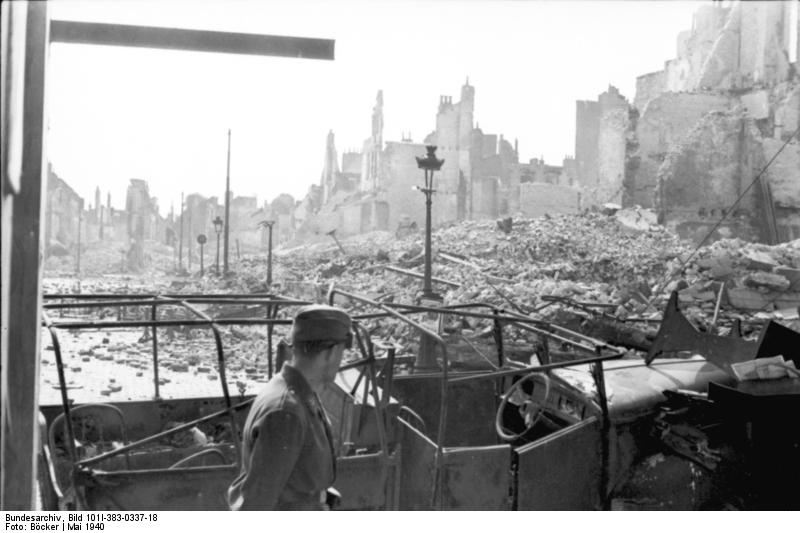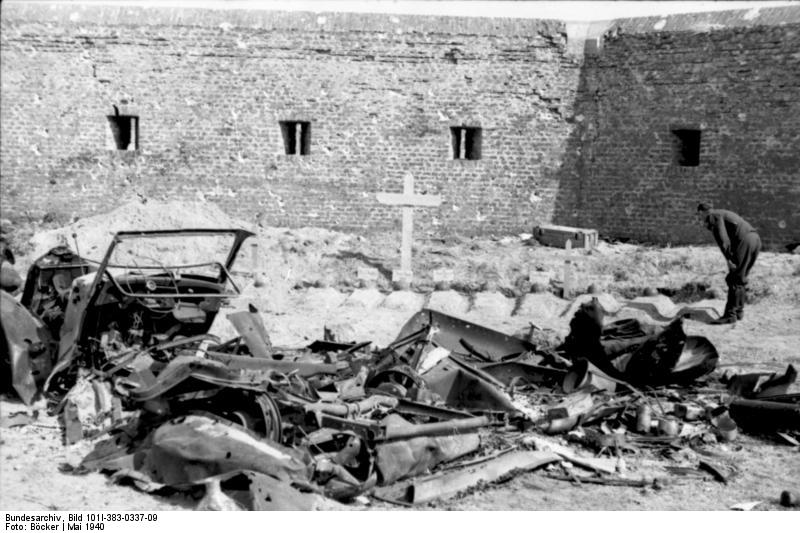France Norway 1940:
The Defence of Calais (30 Infantry Brigade)
The Defence of Calais in May 1940 is one of the most entralling and yet most tragic battles during the Second World War. It was a time of much confusion and alarm as German armoured forces reached the Channel coast near the posts of Boulogne and Calais, thereby cutting off the British Expeditionary Force and French 1 Army from the rest of the French Army.
DOWNLOADABLE DOCUMENTS (pdfs)
» 1. Background
» 2. Thursday 22 May 1940
» 3. Friday 23 May 1940
» 4. Saturday 25 May 1940
» 5. Sunday 26 May 1940
» 6. Epilogue
» 7. Officers 1 Bn. The Queen Victoria’s Rifles
» 8. Officers 2 Bn The King’s Royal Rifle Corps
» 9. Officers Rifle Brigade Calais
» 10. Deceased 1 Q.V.R. Calais
» 11. Deceased 2 K.R.R.C. Calais
» 12. Deceased 1 Rifle Brigade Calais
At this time, the eventual evacuation of the vast majority of the B.E.F. from Dunkirk was nowhere near certain or even likely. Defeat and possible capture of the entire B.E.F. was a real possibility. It was in these circumstances that the new Prime Minister, and the War Cabinet, decided to sent ad-hoc forces to Boulogne and Calais to hold these ports and delay the German advance towards Dunkirk from the south.
The troops sent to Boulogne were landed and within a day evacuated safely back to the U.K.. For the men of the 30 Infantry Brigade, which was hurriedly sent to Calais with an armoured regiment from the 1 Armoured Division, their fate was very different. For four days and nights, together with some determined French soldiers, they held off German armour and infantry troops, steadily being forced back within a shrinking perimeter. They were subject to frequently bombing raids by German aircraft, that reduced large parts of pre-war Calais to rubble.
Unknown to most of the men, the Prime Minister (Winston CHURCHILL) and the War Cabinet had decided NOT to evacuate the men of 30 Infantry Brigade from Calais. A decision had been taken to deliberately sacrifice these men in order to give more time for the evacuation to proceed at Dunkirk. Short of food, water and ammunition (apparently, at the end, some soldiers took to throwing empty wine bottles at German troops), exhausted physically and mentally, the French and British soldiers fought on until the inevitable end on Sunday 26 May 1940.
We know the outcome and what these men achieved, but many men did not. Some were killed and now lie in the Calais Southern Cemetery or are remembered on the Dunkirk Memorial. Other managed to escape by a most ingenuous variety of ways. However, for most men (several of whom had been injured), five years of captivity lay ahead in Germany, Poland and other occupied countries.
This is their story.
I recommend the following book written by Carole McENTEE-TAYLOR. I have the earlier version called ‘Weekend Trippers’, which I found enthralling and very sobering. I do suggest you read it, I doubt that you will be disappointed. It can be ordered through the Pen and Sword link on the front page of this website. For more information please see: http://www.carolemctbooks.info



